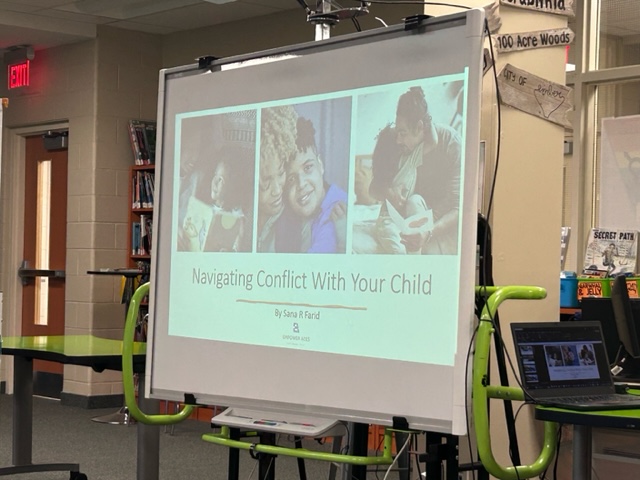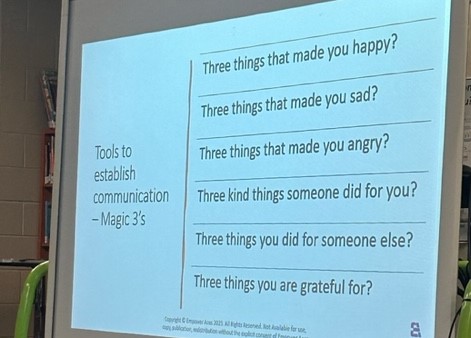
How many of us feel our house is almost always a war zone with constant clashes with the kids? Or wish that we haven't had that last conversation with them the night before and regret how we've handled it?
For most parents donning multiple hats throughout the day, handling conflict with their children is a stress trigger, let alone applying strategies to deal with it. And traditionally speaking, conflict is always deemed harmful.
Thankfully enough, Sana Farid, a conflict transformation and youth development consultant, shared tips on redefining the approach to conflicts for resolving problems with our children in a parenting workshop organized by the Emily Carr Public School council on-site in the last week of April.
As per the conflict transformation school of thought, conflicts are neither good nor bad; they are just opportunities and natural.
"It is the choices we make because of the conflict that make the situation positive or negative," she added.
Starting with redefining parent-child conflict and the role of environment in a child's development, Farid highlighted how we need to choose appropriate communication styles to transform a conflicting situation.

The key takeaway, among many others, was when we understand the importance of navigating conflict constructively with our children, we can establish a healthy communication channel; of course, the earlier, the better!
Tips for handling conflict constructively with your child
- Change your mindset when faced with a conflict. Acknowledge it as an opportunity and work around the situation, which may lead to a positive outcome. It could be a chance to have conversations or understand the bigger situation triggering the action.
- Instead of reacting to the behaviour, focus on the need. Your child's acting up may be a cry for help. Before judging or trying to rectify the apparent behaviour, use your listening skills to identify the need for that action.
- Supervise the environment that your child is exposed to. The exposure must be monitored and regulated, whether a TV show labelled kids program or a video game.
- Understanding what triggers your anger and leads to conflict is very important. And it applies to your child as well. Often anger is fear in disguise or caused by exhaustion. Once we recognize the hidden source, it's easier to handle it.
- When heading towards a clash, you should consciously engage in activities to release that tension and set good examples. For example, take timeouts for yourself, allow a break in the conversation or let your child cool down for five minutes.
- Engage in assertive communication in conversations with your kids, focusing on respect for individual needs. For example, we often need to set boundaries while parenting. However, it's essential to identify that we can disagree with differing opinions as long as there is respectful communication.
- Use conversation-starters from the early years to keep the lines of communication open with your child as they grow older.

Also, a local mom, Farid has over fifteen years of experience working with children and youth. She has written a children's book on diversity and tolerance titled "People Are Like Cupcakes."
Farid facilitates workshops for children and parents as part of the Empower Aces youth development platform to help children thrive in high-stress environments and equip guardians with the awareness and tools to help the children in their journey.
She recommended the Little Book of Conflict Transformation by John Paul Lederach for parents interested to read more about conflict transformation.